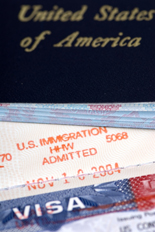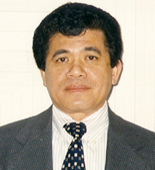US Immigration News
|
LEGAL NOTES / 16 AUG 2006
By REUBEN S. SEGURITAN |
|
|
|
|
|
H-3 Option for Foreign Trainees |
|
 |
|
Under the H-3 visa, US companies and institutions bring in foreign temporary workers for training in an established training program for a maximum period of two years. These workers may otherwise qualify for a B-1 visa if salary comes from outside the US or a J-1 visa if under a J program. The spouse and children of the H-3 visa holder may accompany the worker under the H-4 visa.
|
|
Who May Benefit
The training program may be in any field of endeavor, for
example, the professions, commerce, agriculture or industrial
activities. Nurses who have unrestricted license from the
country of education, or are qualified to practice under state
law, if educated in the US or Canada may receive training in H-3
status. Foreign medical students may qualify for externships on
an H-3 visa as well.
In 1990, H-3 visa regulations for foreign trainees in the field
of special education were relaxed. Training programs in
education children with physical, mental or emotional
disabilities were exempted from the H-3 training program
requirements. The H-3 petitioner, however, must be an
organization with a trained staff and a “structured program for
providing education to children with disabilities, and for
providing hands-on experience to participants in the special
education exchange visitor program.” In addition, the foreign
trainee must have or will eventually have a degree in special
education, or experience caring for disabled children. The
maximum stay for H-3 Special Education trainees is 18 months and
there annual H-3 visa limit is 50.
|
Requirements and Restrictions
The law prescribes four important requirements for an H-3 training
program: first, it must not be available in the beneficiary’s home
country; secondly, the beneficiary will not displace the regular
employment of citizens and resident workers; third, the training
will not result in “productive employment unless necessary”; lastly,
the training will benefit the beneficiary in pursuing his/ her
career outside the US. |
|
|
The USCIS will examine the training program to ensure it meets the
above requirements by scrutinizing whether any of the following
features are present.
• It deals with generalities and does not have a fixed schedule,
objectives or means of evaluation;
• It is incompatible with petitioner’s business or enterprise;
• The beneficiary already has substantial training and expertise in
the proposed field of endeavor;
• It is in a field of endeavor where training will unlikely be used
outside the US;
• It results in “productive employment, unless necessary to the
training”
• It is designed to recruit and train foreigners for staffing of US
domestic operations of petitioner
• The petitioner has no physical plant or sufficient staff to
provide proposed training;
• It is designed to extend the total allowable practical training
allowed a nonimmigrant student.
If present, the above features would pose a risk to the H-3
petition.
|
Limitations
Since the purpose of the H-3 visa is to provide training only, one
express limitation is that the program should “not (be) designed
primarily to provide productive employment.”
No extensions beyond the 2-year limit of the H-3 are allowed. The
H-3 visa holder may not change status to any H or L visa. Unlike the
H-1B visa for specialty occupations, the H-3 visa holder is not
allowed to have the dual intent of working temporarily while seeking
to adjust to permanent resident status.
Also, if the training program changes substantially from that for
which the H-3 was approved, a new H-3 petition must be filed.
Otherwise, if the trainee participates in the substantially changed
training program, s/he will be in violation of his/her status and
may be deported.
How to apply
The petition of the US organization or business establishment for an
H-3 is made on Form I-129. To allow the USCIS to examine whether the
training program meets the requirements for the H-3 visa, the
sponsoring organization must submit a statement describing the
training program, and the supervision to be given, specifying the
number of hours spent on classroom or on-the-job training; the
amount of time spent in productive employment; the reasons for
training the beneficiary and why such training cannot be obtained in
the alien’s country; the amount and source of the beneficiary’s
compensation, and the benefit that the beneficiary’s training will
bring to the sponsoring organization.
|
 |
REUBEN S. SEGURITAN has been practicing law for
over 30 years. He was former immigration editor and is author of a
book on immigrant experiences. He frequently speaks on immigrant
issues and for his advocacy efforts he was the recipient of two
presidential awards by President Ramos and an award by the
Commission on Filipinos Overseas. He previously taught business law
and international politics. For further information, you may call
him at 212 695 5281 or log on to his website at www.seguritan.com |
|
|
|
| |
|
|
| |
|
|
| |
|
Terms of Use. Privacy Policy. Disclaimer. |
| |
|
|
|
 |
Filipina and Filipino for friendship, dating, chat, romance on Filipino Friend Finder |
|
|
|
|
|
|
| |
| |
 |
| |
| |
| |
| |
| |
| |
| |
| |
| |
| |
| |
| |
|